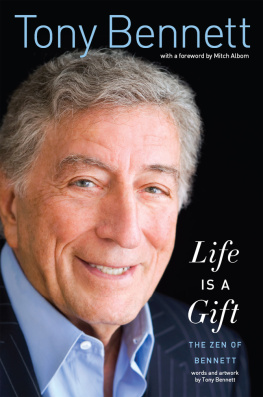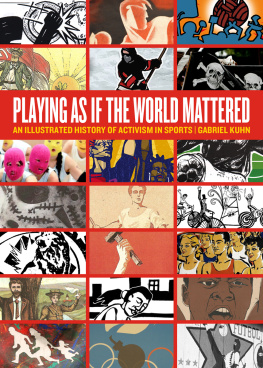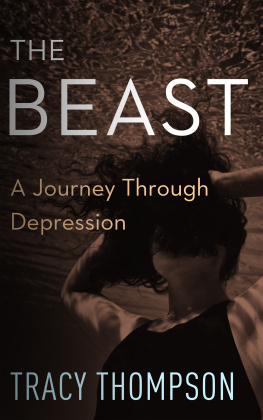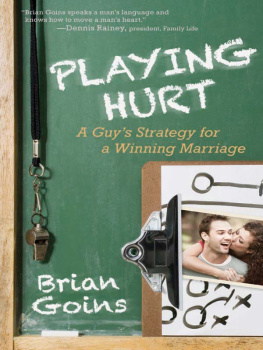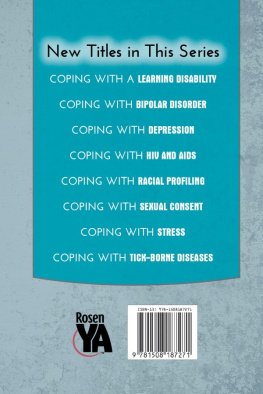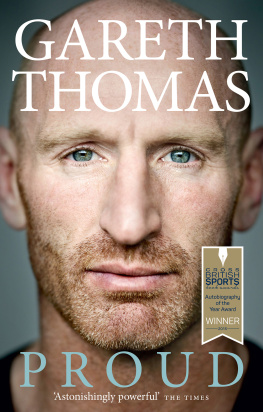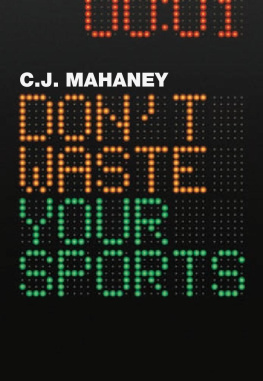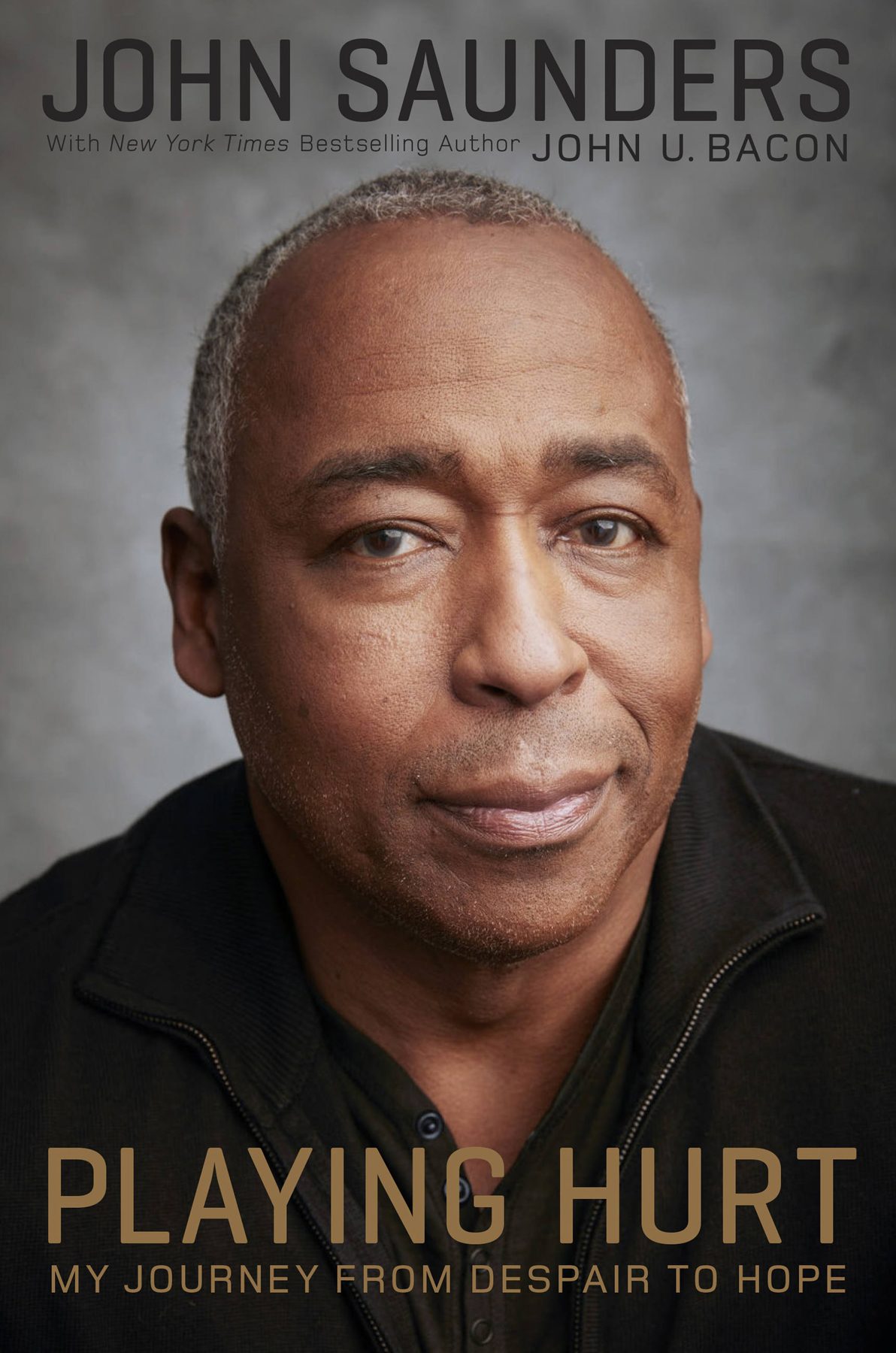Note: The information in this book is true and complete to the best of our knowledge. This book is intended only as an informative guide for those wishing to know more about health issues. In no way is this book intended to replace, countermand, or conflict with the advice given to you by your own physician. The ultimate decision concerning care should be made between you and your doctor. We strongly recommend you follow his or her advice. Information in this book is general and is offered with no guarantees on the part of the authors or Da Capo Press. The authors and publisher disclaim all liability in connection with the use of this book.
Hachette Book Group supports the right to free expression and the value of copyright. The purpose of copyright is to encourage writers and artists to produce the creative works that enrich our culture.
The scanning, uploading, and distribution of this book without permission is a theft of the authors intellectual property. If you would like permission to use material from the book (other than for review purposes), please contact permissions@hbgusa.com. Thank you for your support of the authors rights.
Published by Da Capo Press, an imprint of Perseus Books, LLC, a subsidiary of Hachette Book Group, Inc.
The publisher is not responsible for websites (or their content) that are not owned by the publisher.
Library of Congress Cataloging-in-Publication Data has been applied for.
A famous writer once said first impressions are always unreliable. That proved true for John Saunders and me. Our first encounter was in 2001 on the set of ESPNs The Sports Reporters, which back then was filmed early Sunday mornings on the second floor of a Times Square bar and restaurant. I greeted John, our new temporary host, who was filling in for the beloved Dick Schaap, laid up in the hospital.
Strong, I thought, upon shaking Johns hand.
Mustve been an athlete.
Nice guy.
Good voice.
Probably grateful for this chance.
Should be a decent sub until Dick comes back.
Those first impressions were as deep as a tissueand about as significant. True, John had been an athlete (hockey player) and had a great, deep voice and a strong handshake, but (1) he wasnt crazy about doing the show, (2) he told his wife we were all egomaniacs, (3) he quickly went from sub to permanent because Schaap never returned, passing away tragically a few months later, and (4) he was far more than decenthe was exceptional.
Also, nice guy didnt begin to explain John Saunders.
Its like calling the Mona Lisa a nice painting.
The book you hold in your hands is revelatory. Thats not a word Id normally use for sports-related autobiographies. Such books often recount famous games, locker room friendships, off-camera moments. They end with a My Way final chapter: Regrets, Ive had a few, but through it all, its been a towering life that I wouldnt change.
John was never going to write a book like that. John didnt live a life like that. Unbeknownst to many of us, including athletes, fans, and those who called him a good friend, John battled a raging demon most of his life.
This is a book about that.
Which makes it so much more than an autobiography.
To sit by John away from the cameras or to chat in a restaurant or on an airplane going somewhere, you would never know the depth of his challenges. You would never know that his sleep was haunted, that he bunked in with pain, that his life was a series of emotional hurdles and physical abuses, or that his subconscious often took him to dark places.
Instead, you would think, Here is the most affable guy, devoid of an ego, engaged with your conversation, a guy who loves his family, talks constantly about his wife and daughters, adores hockey and college football, and stands up for athletes other people criticize.
He was all that. He was a joy. A loyal friend. A terrific storyteller. The kind of guy who was never too busy to do something charitable.
But he was more. And that more was like an anvil tied to his frame.
For one thing, John was in pain. Constantly. His banging career in hockey left him paying a lifelong price. A series of adult mishaps tortured his body even more. Diabetes tethered him to insulin shots. There were Sunday mornings when youd have thought John played an overtime NHL game the night before. His voice was groggy, his beefy frame sagged, his shoulders were killing him, and his hands shook. His energy level was barely enough to get an insulin needle into his skin.
Yet by the time the cameras rolled, hed somehow inflated, his full-strength baritone filled the room, and he arrested the lens with a welcoming smile and complete command of the set.
The turnaround was astonishing.
But, as John tells us in these pages, it was a double life. Hed grown used to sucking it up and toughing it out, to hoisting a smile and keeping the chatter going. Professionally it wasnt an act. John truly loved broadcasting and his front-row seat to major sporting milestones. He truly enjoyed the coaches and fellow broadcasters he called his friends.
But you cannot lose your shadow, no matter how they adjust the lights. And Johns shadow of early abuse and teenaged depression dogged him as an adult. His attempts at treatment remained largely a secret, as did certain hospital stays and dark battles with suicidal thoughts. But this was who John Saunders wasalong with his much-admired professional reputation.
And not long ago he decided to come clean. To tell his story, demons and all.
So he worked with John Bacon and wrote this book.
And then he died.
When we got the news that John was gone at the too-early age of sixty-one, we were stunned. We just saw him. He seemed fine. He seemed happy. After finding our footing, the panelists on The Sports Reportersand its longtime producer, Joe Valerioall agreed. The entire Sunday show would be about John. Thats pretty rare, to dedicate a full show to a host. But The Sports Reporters was a kind of family. And we all felt that strongly about the man.
Still, I can tell you that, even as we prepared our topics, we didnt know exactly how John died. It was shrouded in a certain mystery, the way, it turns out, much of his life had been. Our tributes to him were laudatory, highlighting his gifts, his talent, his patience, his wisdom, his loyalty, his friendship, his big voice and even bigger heart.
But we barely mentioned his depression. We didnt talk about the battle of his life. That is a story only John could tell. And as it turned out, he had just finished telling itto the written page.
And so you have it here. I could spend endless words talking about John the conversationalist, John the funny storyteller, John the loyal Canadian arguing for more hockey topics, John the father who got teary eyed when he spoke about his daughters accomplishments.


